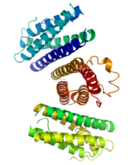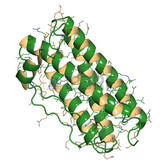Biosimilars/Research
Challenges and opportunities in producing biosimilars
In a viewpoint article published in ACS Medicinal Chemistry Letters [1], Dahodwala and Sharfstein discuss the challenges and opportunities faced by biopharmaceutical manufacturers in producing biosimilars, equivalent versions of therapeutic proteins, and the role of regulatory agencies, particularly the US Food and Drug Administration (FDA), in approving these compounds.
Bevacizumab improves survival in NSCLC patients
In what could be good news for recently approved bevacizumab biosimilar Mvasi, a study has shown that bevacizumab-containing regimens improve survival in advanced non-squamous non–small cell lung cancer (NSCLC) patients.
Adalimumab biosimilar ABP 501 shows similar efficacy, safety and immunogenicity
Biosimilars are defined by the US Food and Drug Administration (FDA) as a biological product that is ‘highly similar to’ an approved biological product (the ‘reference’ or ‘originator’ or ‘bio-originator’ product) and that has ‘no clinically meaningful differences’ in safety or effectiveness compared to the reference product.
Barriers to access to biosimilars
Barriers to the use of biosimilars include healthcare professional and patient opinions. But national and local guidelines, levels of funding and differing approaches to healthcare management can also influence access to biosimilars in different Member States of the European Union (EU), according to authors from the National Advisory Unit on Rehabilitation in Rheumatology and the Rheumatology Department of Diakonhjemmet Hospital, Oslo, Norway [1].
Integrating biosimilars into clinical practice
According to authors from the National Advisory Unit on Rehabilitation in Rheumatology and the Rheumatology Department of Diakonhjemmet Hospital, Oslo, Norway, key questions when it comes to biosimilars include interchangeability, switching and automatic substitution [1].
Biosimilars for rheumatic diseases
Biologicals have become central to the long-term management of many chronic diseases, including inflammatory rheumatic diseases. Biosimilars may help to fill an unmet need by improving patient access to effective biological treatments for chronic diseases. In light of these facts, authors from Norway reviewed biosimilars for rheumatic diseases [1].
Equivalence of rituximab biosimilar in rheumatoid arthritis
A network meta-analysis was used by researchers from Italy to ‘reinforce the clinical data available’ for the equivalence of the rituximab biosimilar CT‑P10 [1].
Positive phase III results for Pfizer’s trastuzumab biosimilar
Pharma giant Pfizer announced on 10 September 2017 positive results from the pivotal phase III study of its candidate trastuzumab biosimilar. Pfizer says that ‘data from the REFLECTIONS B327-02 study demonstrates equivalence in objective response rate (ORR) for patients with HER2-positive metastatic breast cancer’.
Comparable efficacy and safety observed in patients switched to biosimilar CT-P10
Rituximab is a monoclonal antibody that targets the CD20 protein that is primarily found on B lymphocytes. Through depletion of CD20-positive B cells in the peripheral blood and bone marrow, rituximab is effective for treating some haematological malignancies and immune-mediated diseases such as rheumatoid arthritis (RA). CT-P10 (Truxima) is a biosimilar of the rituximab reference product. It is the first biosimilar to receive market authorization from the European Medicines Agency and is approved in Europe for all indications for which RTX is licensed [1]. A phase I randomized controlled trial (RCT) in patients with RA demonstrated pharmacokinetic equivalence of CT-P10 and reference rituximab over 24 weeks of treatment [2], and comparable efficacy and safety of these two drugs has recently been demonstrated over an extended treatment duration from the same trial [3]. With biosimilars typically being less expensive than originator biologicals [4], it is of interest to know whether patients treated with an originator biological can be switched to a biosimilar to save healthcare costs and increase access without affecting treatment efficacy or safety. An open-label extension (OLE) study that enrolled patients who had completed the aforementioned phase I RCT has been published [5]. The study has demonstrated comparable efficacy and safety profiles in patients who switched from the reference rituximab to CT-P10 and those maintained on CT-P10 throughout treatment [5].
Positive phase III results for Amgen’s trastuzumab biosimilar
Biotech giant Amgen and partner Allergan announced on 9 September 2017 positive data from a phase III study of their trastuzumab biosimilar (ABP 980) compared to Herceptin (trastuzumab).
Positive phase I results for rituximab biosimilar CT-P10 in patients with rheumatoid arthritis
Rituximab is an established anti-CD20 monoclonal antibody used for the treatment of some haematological cancers and immune-mediated diseases, such as rheumatoid arthritis (RA). CT-P10 (Truxima) is the first biosimilar of the rituximab reference product and was approved in Europe for all licensed RTX indications in February 2017 [1]. A phase I randomized controlled trial (RCT) of CT-P10 versus reference rituximab in patients with active RA demonstrated that the two drugs had equivalent pharmacokinetics after a single course of treatment and that their efficacy, pharmacodynamics, immunogenicity and safety were comparable up to Week 24 [2]. To allow comparison of CT-P10 versus reference rituximab, patients in the same phase I trial received a second course of treatment and were evaluated for efficacy, safety, pharmacokinetics, pharmacodynamics, and other clinical data for up to 72 weeks. These data demonstrate that the clinical profile of CT-P10 is comparable to reference rituximab in patients with RA over an extended treatment duration [3].
Biological drug evolution: improved awareness and pharmacovigilance required
The safety profile of established biological drugs can alter over time following changes to manufacturing processes. However, healthcare professionals are often unaware of changes and there is a need for improved pharmacovigilance, according to a report published by researchers in Scotland, UK [1].
Rituximab biosimilar CT-P10 could save Europe Euros 90 million in its first year
A recent publication in Advances in Therapy suggests that introducing CT-P10, a biosimilar of the anti-CD20 monoclonal antibody rituximab, would generate significant savings for European healthcare systems [1]. CT-P10 is approved by the European Medicines Agency (EMA) for all indications held by reference rituximab, including rheumatoid arthritis and haematological cancers, such as non-Hodgkin’s lymphoma and chronic lymphocytic leukaemia. Although the therapeutic benefits of anti-CD20 therapy are well established, the cost of reference rituximab is thought to create barriers to patient access [2]. It is hoped that the introduction of more affordable biosimilars will help address this issue. Gulácsi L et al. therefore quantified the potential budgetary impact of introducing CT-P10 for the treatment of rheumatoid arthritis and CD20-positive cancers in 28 European countries [1].
Biological drug evolution: inadequate short-term clinical trials
The safety profile of established biological drugs can alter over time following changes to manufacturing processes and short-term clinical trials fail to isolate adverse events, according to a report published by researchers in Scotland, UK [1].
Adello Biologics starts phase I trial for pegfilgrastim biosimilar
US-based biosimilars specialist Adello Biologics has started a phase I clinical trial for a biosimilar version of Amgen’s Neulasta (pegfilgrastim).
Biosimilar pegfilgrastim highly similar to Neulasta
Canada-based Apobiologix published analytical results demonstrating the similarity of their pegfilgrastim product to the US reference product, Amgen’s Neulasta (pegfilgrastim) [1].
Real-life data supports efficacy and safety of biosimilar filgrastim
Biosimilars of filgrastim are widely used in the prophylaxis of chemotherapy‐induced (CIN) and febrile neutropenia (FN). However, there are limited observational data on the use of granulocyte colony-stimulating factor (G‐CSF) in non‐Hodgkin’s lymphoma (NHL) and its aggressive subtypes including diffuse large B‐cell lymphoma (DLBCL).
Biosimilar trastuzumab candidate shows ‘similarity’ to Herceptin
Results of a phase III clinical study of Celltrion’s biosimilar trastuzumab candidate CT‑P6 demonstrated the ‘similarity’ of the efficacy and safety compared to the originator biological (Herceptin) in patients with HER2+ breast cancer [1].
US prescribers’ views on the naming and labelling of biologicals
The Alliance for Safe Biologic Medicines (ASBM) has published the results of a survey in which they asked 400 US physicians for their views on the labelling of biosimilar medicines, and a separate survey in which they asked another 400 US physicians for their views on the naming of biosimilar medicines [1]. All those surveyed were prescribers of biological medicines. The surveys were carried out in the run up to the release of guidance from the US Food and Drug Administration (FDA) on the non-proprietary naming of biological products.
Real world switching data for etanercept biosimilar Benepali
Real world evidence from a study of etanercept biosimilar Benepali (SB4) compared to Amgen/Pfizer’s arthritis blockbuster Enbrel (etanercept) have demonstrated ‘sustained efficacy and safety, and high acceptance and adherence in patients initiating treatment with Benepali (etanercept)’, according to Biogen.





















